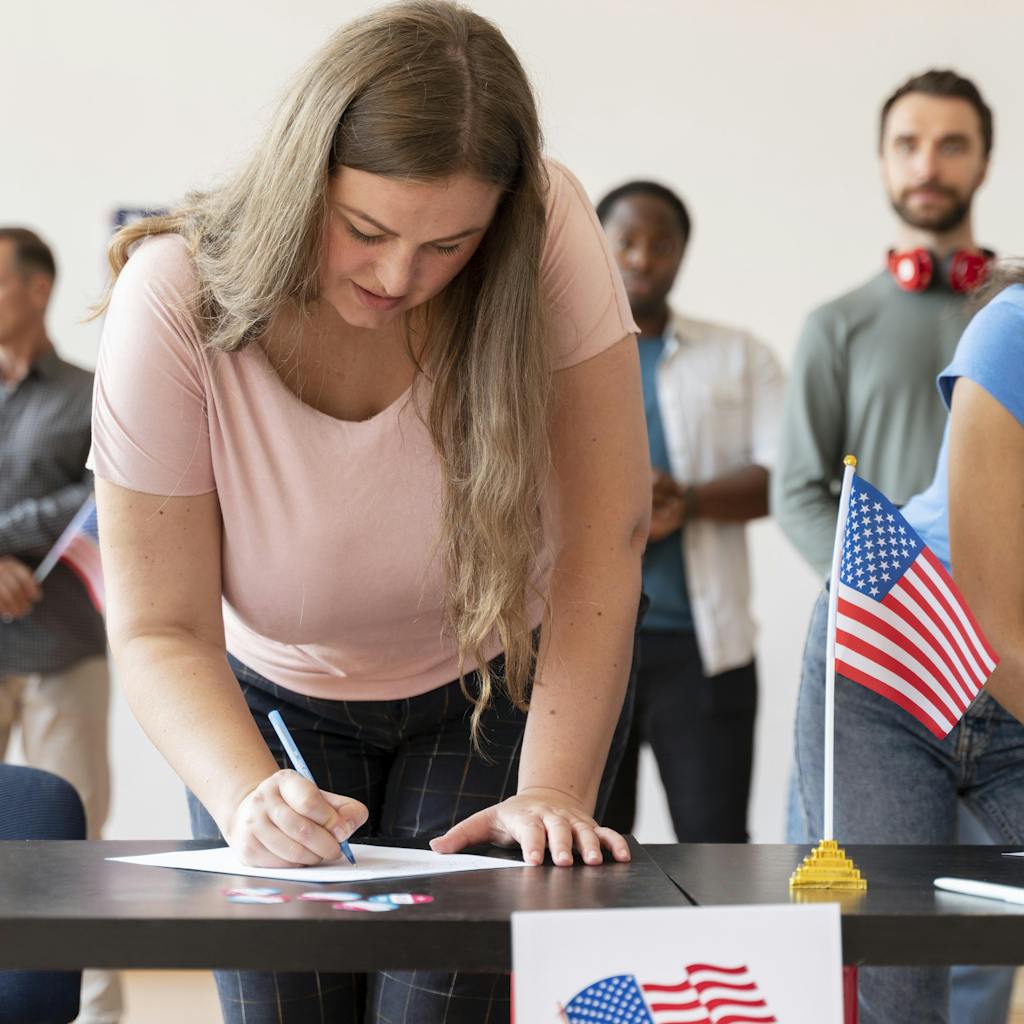How to Vote in US Elections from Abroad
Voting in US elections might appear hard and perplexing to millions of Americans living overseas. Many question whether or not their vote would count. Most skip it completely. However, voting from abroad is easier than you would imagine, and it counts just the same as if you were living and or voting from the United States. Here are the instructions for voting as an American living overseas.
Can Americans living overseas participate in US elections?
Yes! US citizens residing abroad have the exact same right to vote in federal elections as US citizens living within the nation. If an expat is at least 18 years old, they are able to vote for national positions such as president, senator, and representative.
This is true regardless of:
- How many years have you lived abroad
- Whether or not you plan to return to the United States
- How long it has been since your last vote, or whether you have ever voted before.
- Whether you have a home in the United States
Even if you were born and have lived your whole life outside the United States, if you have at least one citizen parent, you may be able to vote in the state in which your American parent resides or resided.
Some states additionally permit abroad US citizens to vote in state or municipal elections. However, although voting for federal candidates has no effect on your state or federal tax burden, voting in state or municipal elections may.
As a citizen of the United States, you always have the right to vote, regardless of where you reside at the time of the election.
How to Vote as an American Citizen Abroad
How precisely do you vote if you are an American citizen residing abroad? Don't fret. It is easy and painless.
Voting from overseas requires only three simple steps:
- Register to vote.
- Wait for your ballot to arrive.
- When your ballot comes, complete it and return it.
Register to vote overseas:
In order to vote, you must register with local election officials in the state where you reside, just as any American citizen living on US soil must do. Typically, this will be the state where you last resided. You may also use the address associated with a valid driver's license or state-issued identification card. As previously indicated, if you've never resided in the United States, you may be eligible to use the address of a parent or any other relative who is a U.S. citizen.
Then, in addition to enrolling, absentee ballot requests must be made.
Utilize the Federal Post Card Application for voter registration and ballot request (FPCA). You must submit a new FPCA each year and if your address, name, or email changes. If you have not already done so, submit your FPCA at least 45 days before an election so that officials have the time to process it.
The FPCA is available on several websites, including:
Overseas Vote Foundation Federal Voting Assistance Program (FVAP) VoteFromAbroad.org Despite being operated by Democrats Abroad, this website is neutral.
All three websites make it as simple as possible to comprehend and finish the form, so do not anticipate any difficulty.
Depending on the state in which you register, you may be required to submit a paper copy of your FPCA. If you do not have access to a printer, you may always contact the nearest US embassy or consulate to obtain an FPCA and a list of your state's regulations.
In many places, you must be registered at least one month before to voting day, so don't procrastinate. Don't be concerned if it's too late to file an FPCA before the election. You have not missed your opportunity. The Federal Write-in Absentee Ballot (FWAB) is a backup alternative that is also accessible through the FVAP website.
Upon approval of your application, your name will be added to a list of voters to receive absentee ballots.
Wait for your absentee ballot to arrive:
After completing all of the necessary requirements, you can only wait for your absentee ballot to come. If you are unsure of whom you will support, now is a good opportunity to investigate your alternatives and make a decision. You may get a voter information guide from your local election office, or you may visit the website of your state's office of elections or secretary of state. Sites such as Vote411.org might assist you in locating your local ballot.
If you have not received your absentee ballot 30 days before to the election, you must obtain the Federal Write-in Absentee Ballot (FWAB). The FWAB may be used as a ballot. Simply choose your chosen candidates and mail the form to the local election officials in the state where you are registered.
Nonetheless, if your ordinary absentee ballot arrives after you have submitted an FWAB, you must complete and return it as well. Some states will only count your provisional ballot if your regular ballot did not arrive by their deadline. If you submit both, you will not be disqualified or have two votes cast in your name.
When your ballot comes, complete and return it:
As soon as you receive your absentee ballot, immediately complete it. Then, there are often many alternatives for returning your ballot:
Online, via fax, or by email: Some states permit electronic submission of ballots. Consult the Voting Assistance Guide for your state's choices.
Local mail: If possible, send your ballot with international postage.
Express Courier Service: If you are pressed for time or the ordinary postal service is unreliable, you may pay for professional courier services such as DHL, UPS, or FedEx.
US Embassy Diplomatic Pouch: From any US embassy or consulate, you can send ballot requests and completed ballots. Simply address the package to the appropriate election officials and affix sufficient US postage before mailing it. (A postage-paid envelope can be obtained from the FVAP website.)
Regardless of the method you pick, you must deliver your ballot to the local election officials in time to fulfill your state's deadline.
And that is sufficient. Congratulations! Your vote has been cast.
Even as an American living overseas, your vote counts:
A prevalent misperception is that absentee ballots are only tallied in extremely close elections. The opposite is true. In accordance with US law, all legitimate votes must be tallied regardless of how they are cast in every election. And each vote, whether absentee or in-person, is treated equally.
Regardless of where you reside, your vote will matter. So go out there, vote now, and make your voice heard!
And if you require further assistance, we can provide it. At Sabalier Law I'm dedicated to making the legal and tax processes of your life abroad as simple and straightforward as possible. Get in contact with me, and I will assist you throughout your expat experience.









